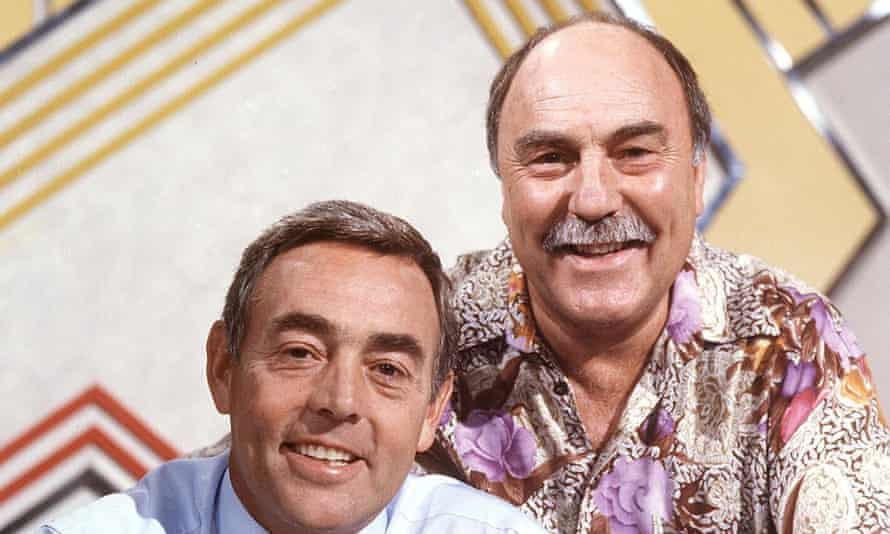Jimmy Greaves: peerless player whose legacy is etched in football history
Farewell, then, Jimmy. Sporting celebrities come and go but Greaves, who has died at the age of 81, was something different, not just a peerless English goalscorer but a footballer who remained etched in the memory of those who saw him play, who seemed in his prime years to be playing with a rare kind of light around him.
There were three aspects to the lasting fascination with Greaves. First, the grace of his movement. Even for those who know him only from archive film it is striking how modern Greaves looked even as a teenager: slim-hipped and dapper, swaying through the heavy-booted defences of the early 1960s like a visitor from some elegantly appointed version of the near future.
The former England manager Terry Venables described playing against a 15-year-old Greaves for the first time with Dagenham Boys. Venables was so captivated he followed Greaves home secretly on the bus, “just staring at him, in the hope of getting some clues about how to become that good”.
Greaves was also a relentlessly effective footballer. He remains the highest scorer in the history of English top-flight football with 357 goals, a record that stood across all European leagues until it was passed by Cristiano Ronaldo three years ago. His final tally of 44 goals in 57 England internationals is still the best sustained goals-to-games record for the national team.
In spite of this Greaves’ England career would be defined by its pivotal endpoint, his omission after injury from England’s team for the 1966 World Cup final.
The relationship had often been a little strained with the England manager, Alf Ramsey, a roundhead where Greaves was regally laid-back. If that breezy, slightly off-beat persona was a part of this, it also gave him a career after football as a pundit and TV personality.
The ITV show Saint and Greavsie made Greaves and the strait-laced Ian St John – who never quite seemed to realise he was the sidekick in this double act – into unlikely stars and pioneers of a more irreverent sporting broadcast at a time of beige-suited Brians and Geoffs.
The duo’s final show at the end of the 1992 European Championship featured a closing shot where Greaves and St John read their own P45 from the head of ITV then cycled off through the sunny streets of Copenhagen on a rickshaw singing This Could Be the Last Time by the Rolling Stones.
It would remain one of the last pieces of analogue TV football content before the Sky revolution later that summer and a rather touching farewell to Greaves’ second life as a public figure.

The young Jimmy grew up in Hainault in the far reaches of east London. As far back as anyone can remember he was always a prodigy. A brilliant career in the Chelsea youth ranks was followed by a goal on his league debut at White Hart Lane aged 17, the latest of Ted Drake’s famed “Ducklings”.
In those early seasons Greaves was simply irresistible, the first player to score 100 league goals before the age of 21 and an alluring combination of talent and fearlessness. By the start of 1961, aged 20, Greaves was off on a run of 174 goals in 137 First Division games, the most sustained spell of scoring success in the history of English football.
This was interrupted only by an acrimonious six-month interlude at Milan, also the stepping stone from his boyhood club Chelsea to his sublime mature years at Tottenham.
It remained a sadness that for a while his public image would be defined by two things at the tail end of this period. With England Greaves began to unravel at just the wrong moment. Before July 1966, the month of the World Cup tournament, he had 43 goals in 49 games and stood unchallenged as a striking phenomenon. His final eight England games from that point brought poor form, injury, a single goal and the omission from English football’s greatest day that left a lasting bruise.
For a while his life was dominated by addiction to alcohol. Greaves suffered, as did those around him. He played his final First Division match for West Ham aged 31. A little haunted, a little stockier, he scored 25 goals in 31 league games in a single season in midfield for non-league Barnet before retiring aged 39 in 1978.
Then came a change. The first line of his 1979 autobiography This One’s On Me was startling in its time: “My name is Jimmy Greaves. I am a professional footballer. And I am an alcoholic.” Sober now, Greaves became a rare public voice on alcoholism and addiction problems, and something of a changed man after some dark times.
He managed a packaging business with his brother-in-law after retirement and was close to his four children. His health was poor in his later years. A second stroke in May 2015 left him unable to speak and eventually to walk.
In the last few years there have periodically been calls for Greaves to receive a knighthood, although it is perhaps more in keeping with the hip, gently iconoclastic status of the young Greaves that this remained unanswered.
He leaves behind instead an unmatched record as an English goalscorer. And something more, too, an athlete who will retain in the mind’s eye the rare, youthful grace of his wonder years.
Subscribe To Our Newsletter
-
How to get a free jersey
- How to get Pcs free jerseys Feedback Customer Reviews About Us Contact Us News FAQ
-
User Center
- Forget Password My Orders Tracking Order My Account Register
-
Payment & Shipping
- Customs & Taxes Locations We Ship To Shipping Methods Payment Methods
-
Company Policies
- Return Policy Privacy Policy Terms of Use Infringement Policy

